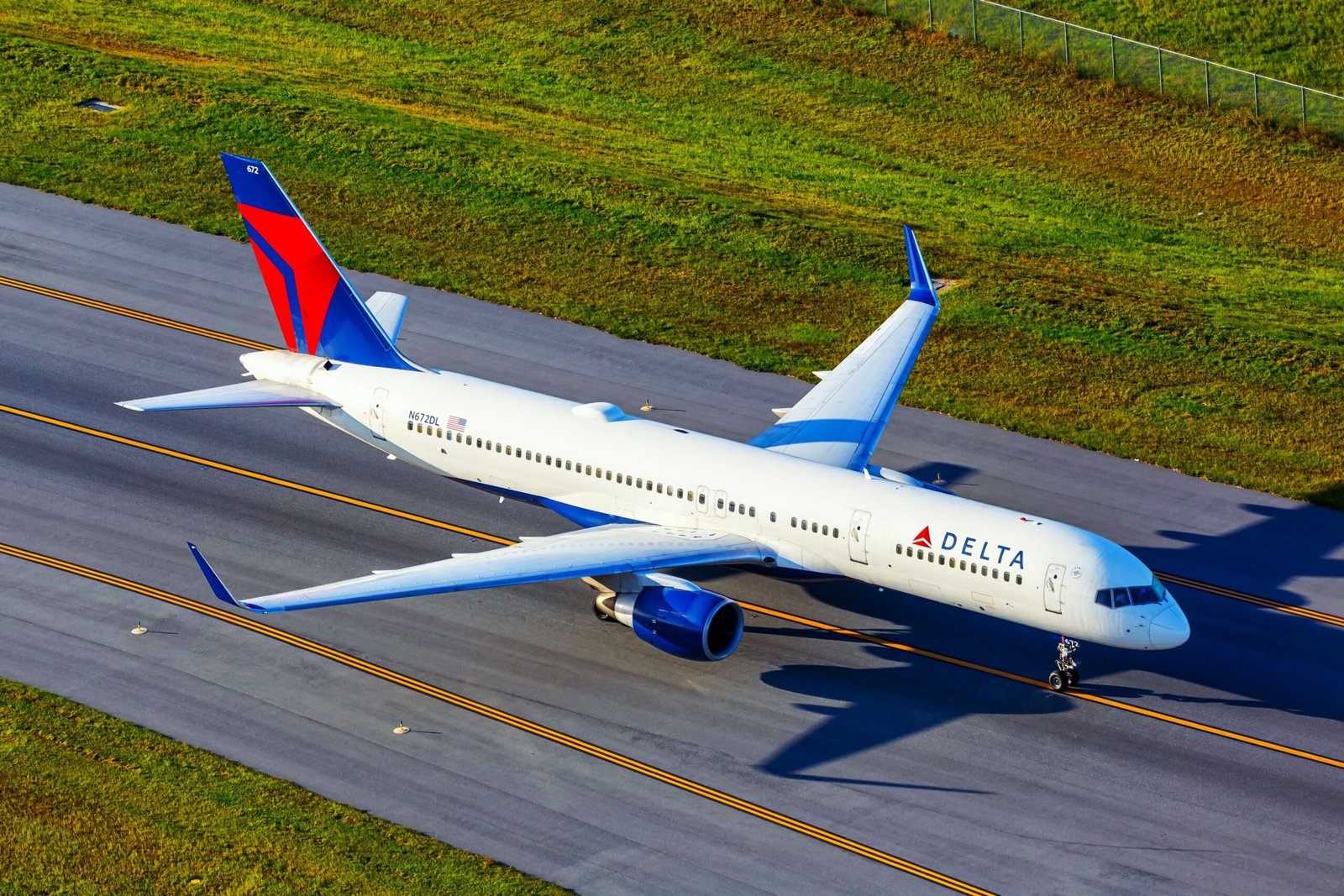Airline controversies flood headlines semi-regularly. For instance, several weeks ago, Southwest’s leaked loyalty program details sparked uproar among some passengers who weren’t happy over the airline’s speculative changes to its Rapid Rewards. Meanwhile, Delta Air Lines began scaling back on Canadian flights in July amid Canada’s U.S. travel boycott, which has forced some states to start begging for Canadian tourists’ return, while other states have practically given up on them. However, a fresh issue, also involving Delta, has emerged in the airline industry that could see passengers’ personal data unfairly used against them (without their knowledge) in order to bump up ticket prices—and it involves the trendiest topic of today’s times: Artificial Intelligence (AI).
The potential AI method of setting airline prices is so controversial, in fact, that Democratic senators and U.S. Transportation Secretary Sean Duffy have expressed concerns, which came right after Delta Air Lines was forced to reassure U.S. lawmakers that it wouldn’t actually use AI in this way. But why exactly are U.S. government officials sounding the alarm over AI airline ticket pricing methods? What does it mean for consumers, and what do airlines stand to gain from its implementation? As it turns out, it could be pretty costly for travelers, as it essentially weaponizes Americans’ personal information to line the pockets of airlines.
Personalized AI Ticket Pricing Is The Latest Airline Controversy—How Does It Affect Travelers?
Delta Airlines company logo on a website with blurry stock market developments in the background, seen on a computer screen through a magnifying glass.
What exactly is “personalized” ticket pricing set by AI? Essentially, AI utilizes an individual’s personal data to set a unique, customized price at the point of searching for and booking flights, all in real time. That could translate to more expensive tickets for some, but also cheaper prices for others.
For instance, AI pricing technology might present a customer with higher ticket costs if it profiles them as any of the following:
The premise of AI personalized pricing is that each consumer receives a different price for the same product: the flight, and businesses, like airlines, have a lot to benefit from here because it boosts profits, making a company much more likely to effectuate a successful sale. Ultimately, free-spending (i.e., possibly wealthier or in urgent need of a flight) flyers will pay more, while those who are more sensitive to higher prices (i.e., potentially less affluent travelers or who merely don’t want a flight immediately) pay less; this type of custom pricing fits each traveler’s desire and ability to pay for the same flight.
However, the ethics, fairness, and integrity of personalized AI pricing have come into question. Why? Because it utilizes consumers’ personal data to function, all while potentially raking in billions for big airlines like Delta, which recently had to defend itself and deny its intention to use AI pricing, catching the attention of U.S. Transportation Secretary, Senators, and U.S. lawmakers on Tuesday—who aren’t happy about it and seek to ban this approach to AI pricing.
U.S. Transportation Secretary Sounded The Alarm Over Personalized Airline Ticket Prices
On Tuesday, August 5th, U.S. Transportation Secretary Sean Duffy said that the department is concerned about airlines exploiting AI to set personalized airline ticket prices, and noted that investigations will take place if any airline does so.
“To try to individualize pricing on seats based on how much you make or don’t make or who you are, I can guarantee you that we will investigate if anyone does that,” Duffy stated, adding, “We would engage very strongly if any company tries to use AI to individually price their seating.”
Duffy’s concerns came just as Delta Air Lines told U.S. lawmakers last week that it won’t and hasn’t used AI to set airfare prices for individuals (outlined in the YouTube video above by PBS NewsHour). Delta previously explained that airlines have used dynamic pricing for over three decades, meaning airfare ticket pricing changes based on various factors, including competition, fuel prices, overall customer demand, and other variables—but not a customer’s personal data.
Delta Air Lines told Democratic senators in a letter, seen by Reuters, that “There is no fare product Delta has ever used, is testing or plans to use that targets customers with individualized prices based on personal data.” It added, “Our ticket pricing never takes into account personal data.”
Duffy did acknowledge Delta’s clarification that the company would not utilize AI to set prices for individual airline tickets, stating, “I’ll take them at face value.” However, some U.S. Senators and lawmakers aren’t as convinced and are seeking bans on this model of pricing through new legislation.
Some Senators And Lawmakers Aren’t Quite As Convinced By Delta’s Clarification And Seek To Ban AI Ticket Pricing
U.S. Congressman Ruben Gallego
Prior to Duffy’s concerned remarks, Democratic Senators Richard Blumenthal, Mark Warner, and Ruben Gallego criticized Delta in late July, claiming they believed Delta Air Lines would actually use AI to set individual prices, which would then “likely mean fare price increases up to each individual consumer’s personal ‘pain point.'”
Previously, the senators referred to a comment by Delta President Glen Hauenstein last December that the company’s AI price-setting technology can set airfares based on a prediction of “the amount people are willing to pay for the premium products related to the base fares.” However, the senators did praise Delta’s commitment not to use AI for personal pricing—but they still had many questions and want more details on the types of data Delta is collecting to set its fares.
“Delta is telling their investors one thing, and then turning around and telling the public another,” Gallego stated. “If Delta is in fact using aggregated instead of individualized data, that is welcome news,” he added.
According to Reuters, Delta declined to comment on Gallego’s statement. Meanwhile, lawmakers are taking the overall level of concern up a notch; they’re seeking to ban companies from utilizing AI ticket pricing—that includes airlines.
Democratic Lawmakers Introduce Legislation To Ban Companies From AI Ticket Pricing—Including Airlines
Furthermore, Democratic lawmakers Rashida Tlaib and Greg Casar have introduced legislation to ban companies from deploying AI to set prices or wages based on Americans’ personal information. Within that scope, they would also bar airlines from hiking individual prices after seeing a search for a family obituary.
Duffy and the Senators’ suspicions may have arisen due to Delta previously saying it intends to implement AI-based revenue management technology across 20% of its domestic network by the end of 2025 in partnership with AI pricing company, Fetcherr.
Fetcherr’s website states that its technology is “trusted by the world’s leading airlines,” listing Delta, Westjet, Viva, Azul, and Virgin Atlantic.
While many airlines are seemingly in favor of AI and are partnering with AI pricing companies like Fetcherr, some, it would appear, aren’t so keen on it. In particular, the CEO of American Airlines, Robert Isom, noted last month that using AI to set flight ticket prices may harm consumer trust.
“This is not about bait and switch. This is not about tricking,” Isom said on an earnings call, according to Reuters, adding, “talk about using AI in that way, I don’t think it’s appropriate. And certainly from American, it’s not something we will do.”
Will Airlines Actually Move To An AI Ticket Pricing Model?
Delta Air Lines plane flying above Las Vegas, Nevada, NV, USA
Although major airlines like Delta may deny that they use AI ticket pricing for now, this new method of creating prices for individual travelers is still potentially on the cards for American consumers unless lawmakers issue an outright ban on it. It remains to be seen whether or not it will indeed be barred, or if airlines will indeed implement it if lawmakers don’t outlaw it as a practice.
Granted, AI pricing is questionable at best; many may deem it unfair and unethical since it could raise prices for some travelers (but not others) merely based on who they are—not to mention Americans’ privacy concerns, as it utilizes personal data to set customized prices. That said, it might actually be beneficial for some flyers; it could offer decreased ticket costs for those unwilling or unable to pay more for the same flight as a wealthier and willing person. Whatever the pros and cons, one thing is for sure: it’s very controversial.





































You must be logged in to post a comment Login